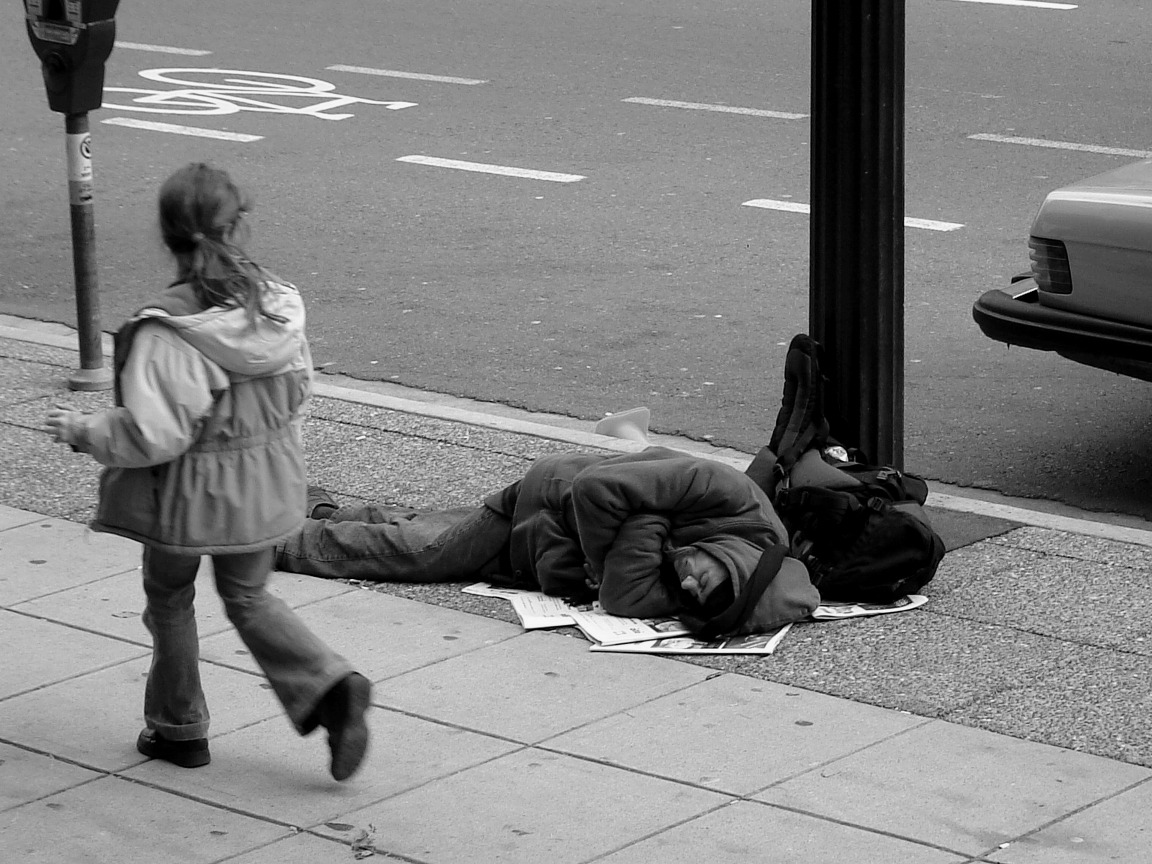Utah hasn’t voted for a Democratic presidential nominee since LBJ’s landslide 50 years ago, but the Beehive State now stands at the cutting edge of one progressive policy. It’s on course to wipe out chronic homelessness, those without shelter for more than a year, usually with a disability, by next year.
How? By giving away free apartments.
| Fiscal conservatism turned the state into an unlikely leader in the fight to end homelessness. |
The initiative began in 2005 when then-Gov. Jon Huntsman launched a 10-year plan called Housing First to provide shelter and social workers to 17 of the most derelict cases.
The state aimed to make homeless people self-reliant. But in the case of failure, people could still keep their apartments. The program has decreased homelessness by 78 percent. It hopes to house the state’s remaining estimated 2,000 homeless people next year.
Inspired by Utah’s example, Denver adopted a similar approach. Even conservative Wyoming is now exploring Utah’s success.
How did Utah suddenly become a hotbed of bleeding-heart liberalism? Why did a state run by Republican governors for three straight decades suddenly embrace a “redistributionist” policy?
It boils down to money.
State officials estimated the annual cost of homelessness, including medical treatment and law enforcement, was more than $16,600 per person. Providing a place to live as well as an expert guide through the menagerie of social services would, by contrast, save $5,000 per person.
So the quest to end chronic homelessness was a fiscally conservative move. That distinction, of course, matters very little to the homeless. What matters is a chance to begin anew.
But for Republicans addressing chronic homelessness, ideology matters. They’re giving away free goods and services to people who didn’t earn them through work.
Yet redistribution is what governments do. To pay for police, teachers, road repair, sewer lines and, yes, food stamps and other goods and services that serve the common good, all governments must by necessity take money from people and companies, in the form of a tax, and spend it on a wide variety of things.
Utah’s innovative approach to homelessness also says something about conservatism as a philosophy of governance. The initiative satisfies two major tenets of conservatism — fiscal responsibility and charity. But that’s not enough for certain kinds of conservatives, because they can’t abide with the idea of someone getting something for nothing, no matter how principled and just the ends might be. In other words, these people aren’t interested in governing or solving problems.
“Redistribution is theft,” Rush Limbaugh recently declared. “It is a powerful government taking from people they deem to have too much, or more than they need, and then just giving it to people they deem worthy of receiving it.”
Tell that to Lloyd Pendleton, a Republican who spearheaded Utah’s Housing First initiative and who is now trying to replicate that success in red-state Wyoming. “These are my brothers and sisters,” he said during a recent prayer luncheon in Casper. “When they’re hurting, we’re hurting as a community. We’re all connected.”
John Stoehr is the managing editor of The Washington Spectator. He wrote this for OtherWords.







0 Comments